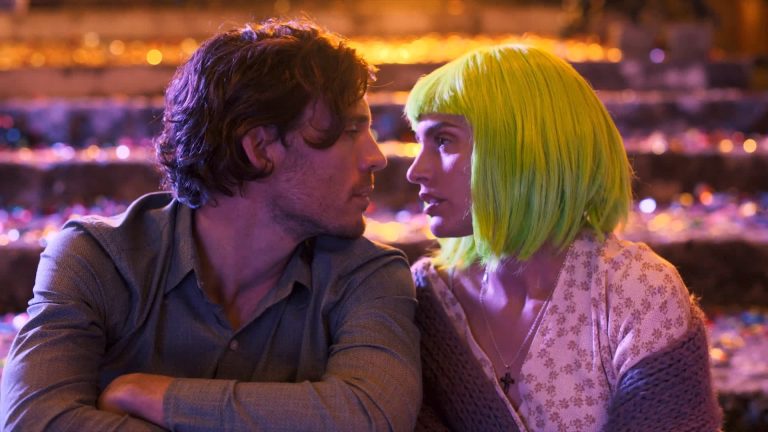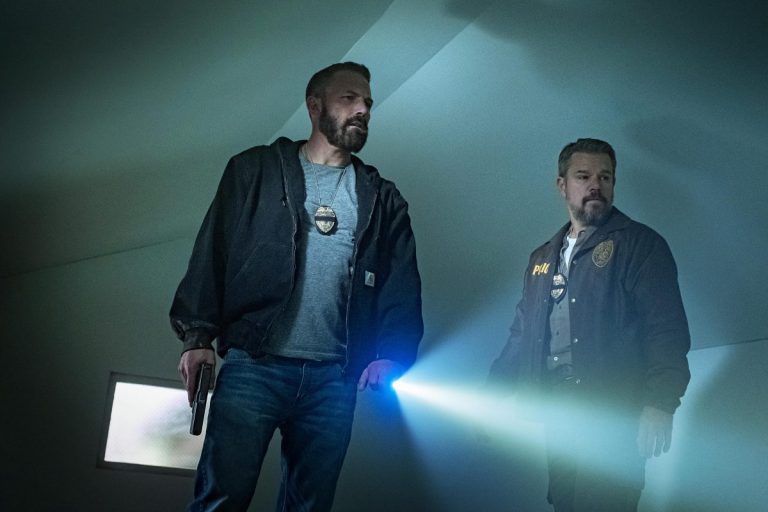Post-traumatic stress disorder has certainly not been a topic that has been under-discussed within American war cinema. Nevertheless, it is rarely the focus of an entire film. Recently acclaimed films about modern warfare, such as “The Hurt Locker” and “American Sniper,” shifted focus on the debilitating consequences of PTSD within their third acts in order to indicate that the battle waged on the battlefield was only part of the fight that every soldier experienced. However, a majority of soldiers’ lives are spent not in active service, as PTSD is a reality that many have to simply live with. Even if this doesn’t result in haunting nightmares regularly, the most minor of incidents can end up resurfacing memories of their service, and all the hardship that it entails.
My Dead Friend Zoe” (2025) is a conscious effort to paint a more holistic view of military service and is able to refreshingly do so without deliberately tying in a political agenda. While it can be challenging to separate the consequences of a specific war from those who fought in it, the reality is that for many in the armed services, their dedication is an employment and recognition of an overwhelming sense of patriotic pride.
It would be a mistake for any film to paint a broad portrait of what all veterans experience and imply that it is universal, but writer-director Kyle Hausmann-Stokes examines a very specific story about the ugly way in which survivor’s guilt can rear its head. Although nothing about the film would suggest that it was inauthentic, details in the closing credits revealed that Hausmann-Stokes’ screenplay was far more confessional than some may have anticipated.
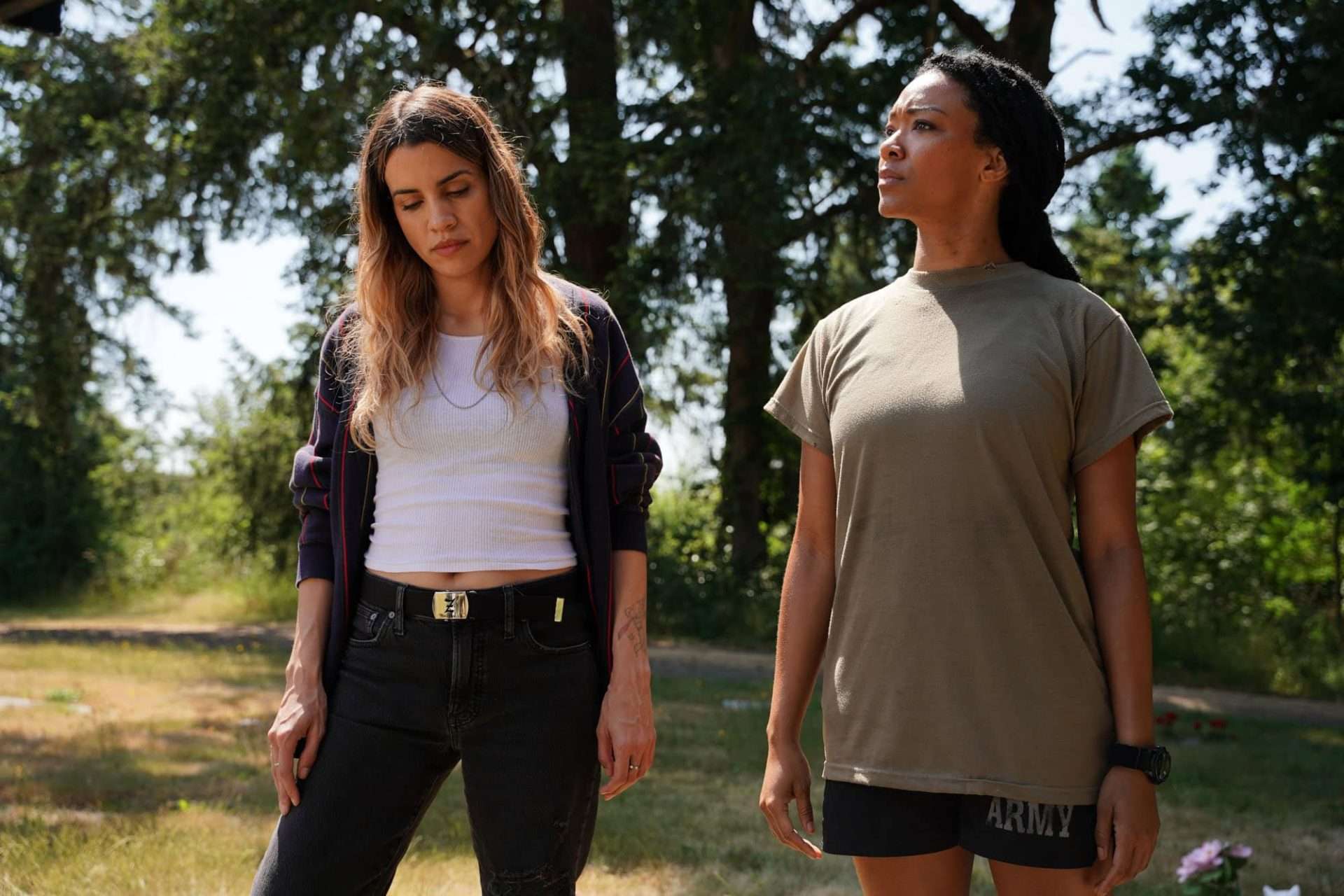
“My Dead Friend Zoe” stars Sonequa Martin-Green as Merit, a veteran of the Afghanistan conflict who finds it challenging to adjust back to her familial life. Although her mother Kris (Gloria Reuben) encourages her to be more social, Merit finds it difficult to be out in public because she is constantly seeing visions of her friend Zoe (Natalie Morales), a fellow veteran who is deceased. Merit isn’t interested in participating in a therapeutic group led by the kind-hearted Dr. Cole (Morgan Freeman). But she is forced to take care of her ailing grandfather Dale (Ed Harris), a Vietnam veteran who has lived on his own in the aftermath of his wife’s death.
The central conflict in “My Dead Friend Zoe” is between those who are struggling with the weight of the world on their soldiers and the people who attempt to offer them aid. Merit’s refusal to get involved with any veterans’ organizations isn’t out of spite, but because she truly feels that there is nothing that can be learned from admitting her secrets. Her guilt about what exactly occurred with Zoe makes it even more challenging for her to tolerate the more seemingly tragic backstories that other veterans speak about. The film’s depiction of PTSD is quite nuanced, as it shows that memories can come flooding back at inopportune moments, which may feel erratic to an outside observer.
Dale is also bitterly in denial about his issues, as his broken-down home is made even more dangerous as the result of his flares with Alzheimer’s. Although this could have easily been a stereotypical “crotchety veteran” archetype, “My Dead Friend Zoe” boasts a screenplay that allows Dale to identify the reasons for his resistance. While Merit’s generation has been lauded for their service, Dale returned from the controversial Vietnam War to be labeled as a killer and traitor by civilians and was forced to mask his service instead of being celebrated for it. It’s another indication that “My Dead Friend Zoe” is smarter than the average PTSD drama. While there are commonalities between different generations, the individual conflicts inspired different public perceptions of what constituted bravery and service.
The film’s most daring conceit is the use of Zoe as a device for Merit to openly discuss her feelings, which certainly makes it easy to stomach extended sequences that are designed to explain her backstory. The chemistry between Morales and Martin-Green is quite strong, particularly in the flashbacks, but the film does overplay its hand when it comes to the revelation of Zoe’s fate.
The teases that Zoe’s death was the result of unusual circumstances are seemingly designed to invoke speculation, which makes the eventual revelation feel closer to a plot twist than it does to an emotional climax. While it’s a clever storytelling device that results in some inventive character interactions, it may have been stronger if the film wasn’t designed like a puzzle box. Given that the message of “My Dead Friend Zoe” is that there is no one way to “solve” PTSD, it seems counterintuitive to structure the film like a mystery.
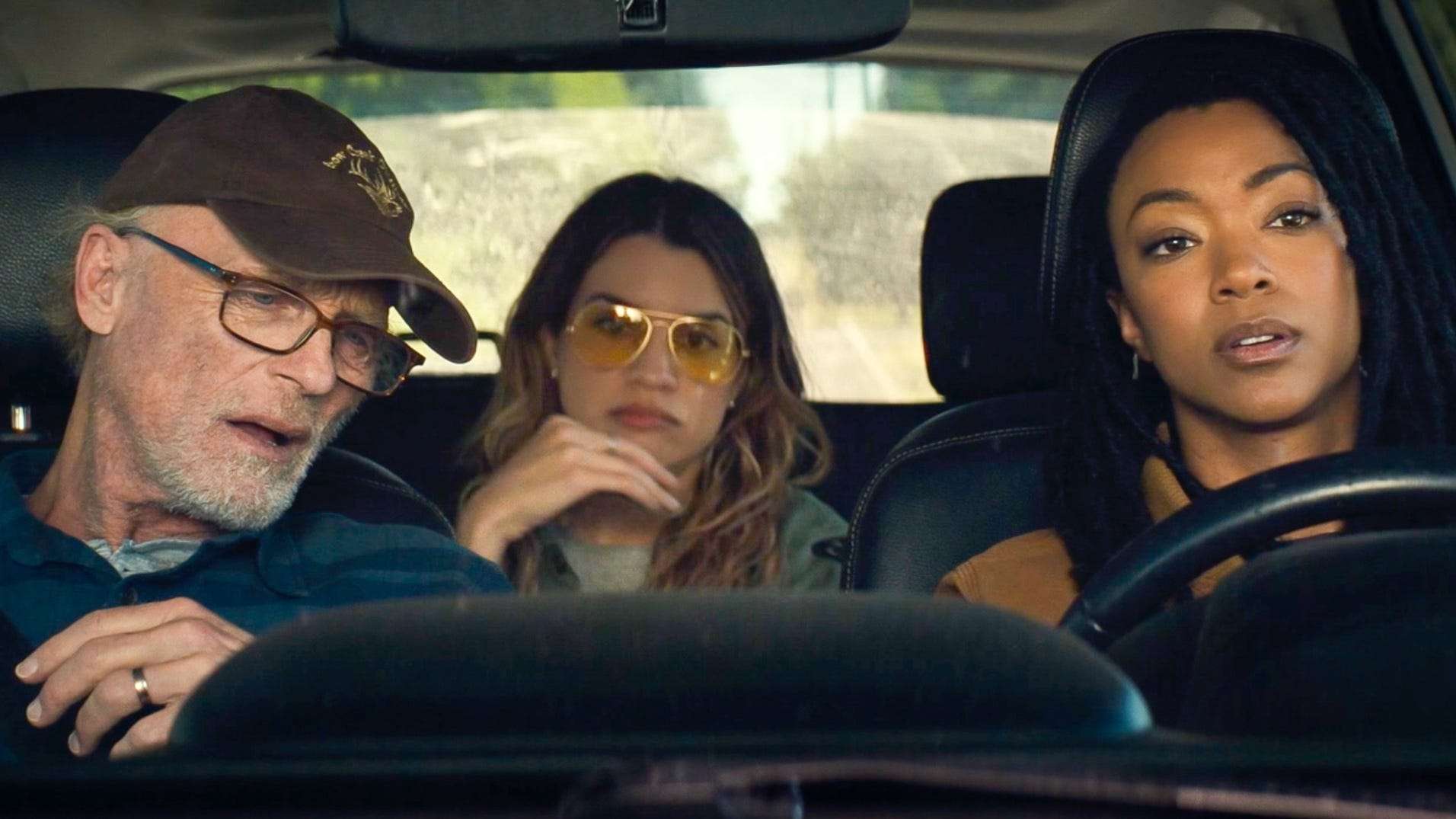
The emphasis on the version of Zoe that exists within Merit’s head is also a distraction from the more interesting relationship with Dale, who is characterized as a man whose stubbornness stems from feelings of betrayal. Dale has learned to never expect anything from his family, government, and community, but his hesitations about trust have left him emotionally distant. Harris is a living legend within the industry who has embodied figures of stoicism and integrity for generations, but his performance in “My Dead Friend Zoe” intertwines a history of pain that elevates the entire film. It’s unlikely that a film released so early within the calendar year would get any type of award season traction, but in a just world, Harris would receive legitimate consideration for an Academy Award nomination for Best Supporting Actor.
Opinions on “My Dead Friend Zoe” may be split when it comes to the film’s more deliberate moments of activism, as the final moments clearly indicate a fealty to specific causes and organizations involved in veterans’ issues. While a lack of distance from the subject material can lead to some uneasy discussions about intentionality, “My Dead Friend Zoe” succeeds as a worthwhile story about survival and resilience in its own right. Just because it shines a light on very specific issues does not mean that it lacks dramatic conviction, or that there is not integrity within the performances. Even if some attempts at black comedy fall flat and some editing choices stall the momentum, “My Dead Friend Zoe” is a powerful examination of the grueling, yet unconquerable quest to escape from the shadow of the past.



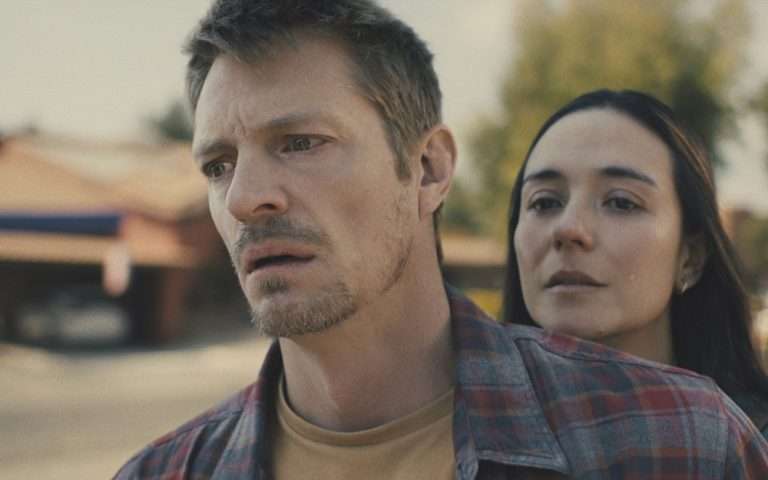
![Effigy: Poison and the City [2019] Review – 1800s set serial-killer thriller fails to engage](https://79468c92.delivery.rocketcdn.me/wp-content/uploads/2021/05/Effigy-Poison-and-the-City-1-768x415.png)
![MLK/FBI [2020] Review – A Profound Look at a Critical Chapter in American Civil Rights Movement](https://79468c92.delivery.rocketcdn.me/wp-content/uploads/2021/02/MLK-FBI-2020-768x432.jpg)
